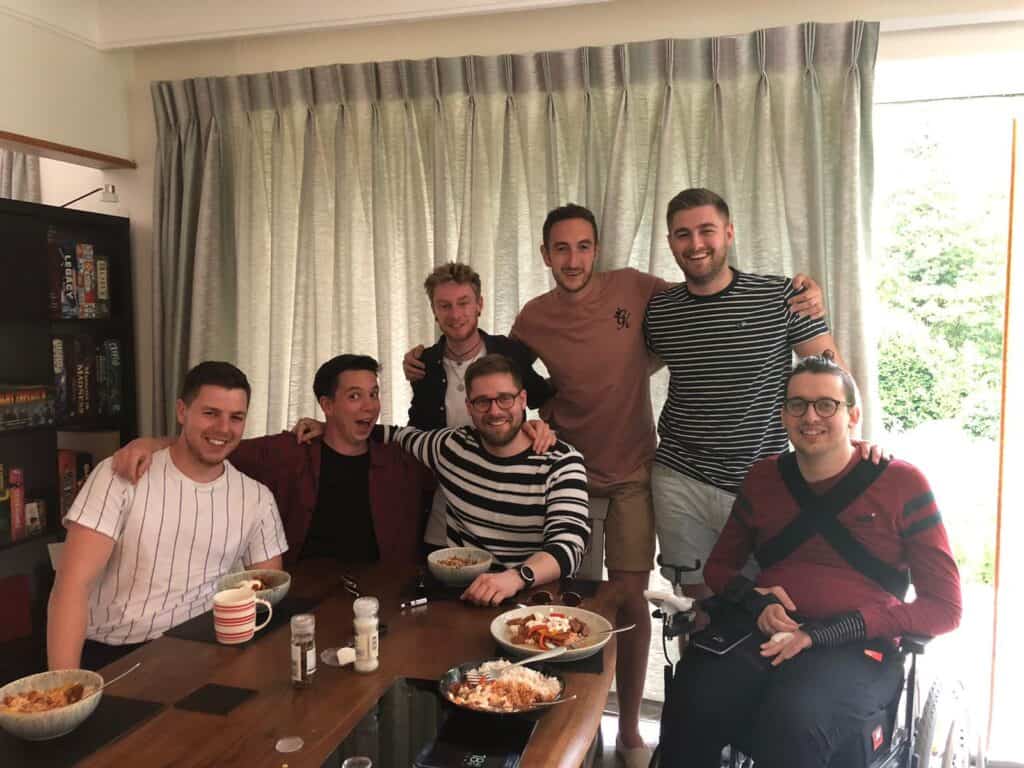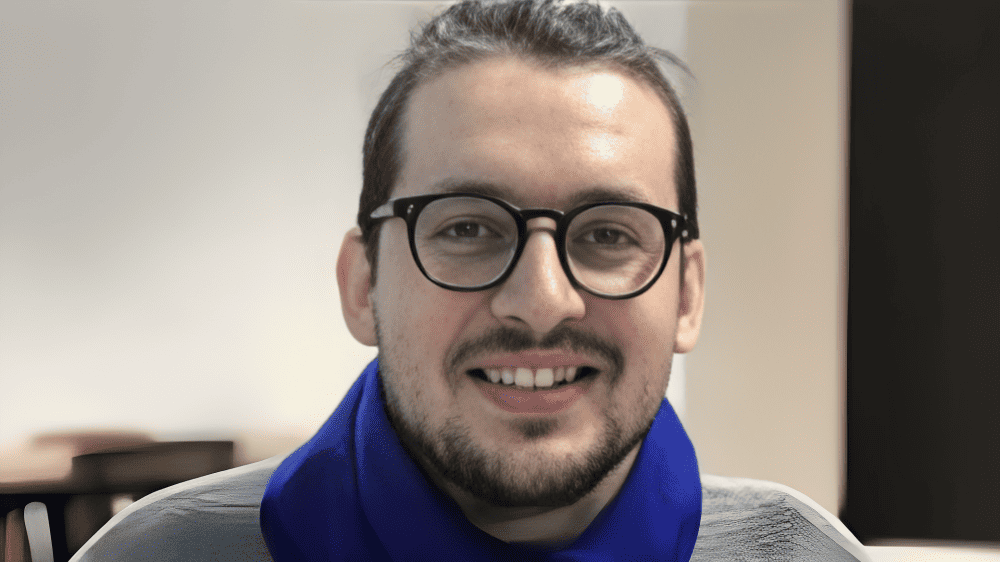Ed Hudson was just 23 years old when he was knocked from his bike by a motorist on a suburban street in Nottingham in February 2018. A newly qualified Doctor of just 8 months, he was on his way to work his shift in general surgery at Nottingham University Hospital.
Despite being a low-impact collision, his injuries were life-threatening. He sustained a fractured and dislocated neck (C4/5) which required extensive surgery after which he was placed in a medically induced coma for 10 days.
“I remember very little of the accident apart from I knew I’d done some serious damage” said Ed. “The hospital operated on me within 4 hours of accident. They relocated the dislocated vertebrae, removed a disk and fused vertebrae together then placed a metal plate over the top of it.”
Ed remained ventilated in ICU for 44 days. During this time his parents were told that there was a 50/50 chance of him requiring permanent ventilation. He was assessed at Grade A on the Asia scoring test within 1-week post-accident, effectively meaning that there was 5% chance he would walk again. With this grading patients are also not expected to be able to move much at all.
“I recall lots of talk of ‘mouth painting’ as an activity for me, this was even though I had slight movement in my right hand. I was keen to get to the Spinal Injuries Unit in Sheffield as I felt buoyed up by what I’d been told they could do for me by way of rehabilitation.”
Ed was eventually transferred to the SIU in April 2018. At this stage he was still being fed through a tube and was only able to talk in short, infrequent bursts which was incredibly isolating for him. He was put on flat bed rest and told that rehabilitation therapy couldn’t start until he was able to sit for 4 hours. Lying flat on his back, only able to watch TV, Ed became very frustrated by the lack of progress.
“I am an extremely motivated individual” explains Ed. “For around 2 months nothing happened, and I became reliant on my girlfriend Izzy – also a Doctor – to help me with basic bed rehabilitation and psychological support. It was a very dark time for us.”
Ed was then introduced to his personal injury solicitor, David Tomlinson from Barratts Solicitorsand from that point onward things began to change for him. David put him in touch with Katie Ryall, a Case Manager from Spinal Injuries Case Management Ltdand Katie took control of Ed’s care. She contacted STEPS Rehabilitation and arranged for him to be admitted as a residential rehabilitation client. Ed is also cared for at STEPS by Mr Pradeep Thumbikat, a Consultant Spinal Surgeon.
“STEPS has humanised me”
Ed arrived at STEPS Rehabilitation in September 2018. “My first impression was that it didn’t feel anything like a hospital…more like a hotel!” recalls Ed. “After 8 months of being in a hospital this was an incredible feeling. One of the most striking things for me was that I had my own room…with a door! I felt like I’d got my privacy back; this had an immediate positive impact on my mental health.”
Like all STEPS patients, Ed underwent a detailed assessment prior to arriving at STEPS, so when he arrived the discussions focused on all the different rehabilitation options and what his goals and preferences were.
Given Ed’s medical knowledge, he already had ideas about what he wanted by way of rehabilitation. Use of a FES bike was a key aspect of his rehabilitation; Ed was also open to being a guinea-pig for some therapies and was willing to try new ideas and techniques. “Every suggestion I have about my rehabilitation is always met with a ‘Yes!’ from STEPS staff. There is a willingness to give everything a go and find ways around any potential issues that might arise.”
By way of example, Ed’s right arm wasn’t moving too well but rather than assuming this lack of movement was down to his neurological condition, staff treated him for joint stiffness instead, which had a positive result. “STEPS have a totally different philosophy. It’s about improving my quality of life in as many ways as possible. Staff are well trained, have a positive ‘can-do’ attitude, and a willingness to try anything.”
It’s not just Ed that STEPS have had an impact on, it’s family members too. “I feel totally included” says Ed’s girlfriend Izzy “I can have dinner with Ed; have a coffee and sleep over. They are just little things, but they are extremely important. The team at STEPS are passionate about including family members in the care of individuals and I love that about them.”
“As a Doctor I can see just how well all the therapists, Doctors and nurses collaborate and the positive impact this has on Ed’s treatment and recovery. Their internal communications are excellent, and everyone is always available… people even come in on their days off and will take Ed to hospital appointments even at short notice!”
Progress so far
Below is a list of just some of the therapies, treatments and medical care Ed has experienced at STEPS:
- Facilitated standing with standing frame and FES hand and leg cycling
- Respiratory muscle strengthening
- Hydrotherapy
- Physiotherapy
- Sessions with a Psychologist
- Sensory programme to deal with his pain
- Acupuncture to promote deep muscle relaxation
- Deep tissue massage
- Colonic irrigation
In the space of a few months Ed’s arm function has improved and he has significantly more stamina and is now able to stay awake during the day. His bowel regime care has vastly improved and he has the freedom and ability to move around not just the facility, but also venture outside He has even taken part in a Boma outdoor all terrain buggy session!
Ed has had the opportunity to trial other equipment such as the Berkel bike; the cyclone and anatomical FES systems (a Professor in FES came to STEPS from Scotland to demonstrate and discuss this with him) and a V track postural seating system.
What next for Ed?
Ed plans to apply to do a PhD in spinal cord injury and is keen to get involved in working with the Spinal Injuries Association. He is also delivering some training for STEPS staff on the topic of spinal cord injuries on what he describes as “misinformation” about it; providing staff will a unique perspective.

